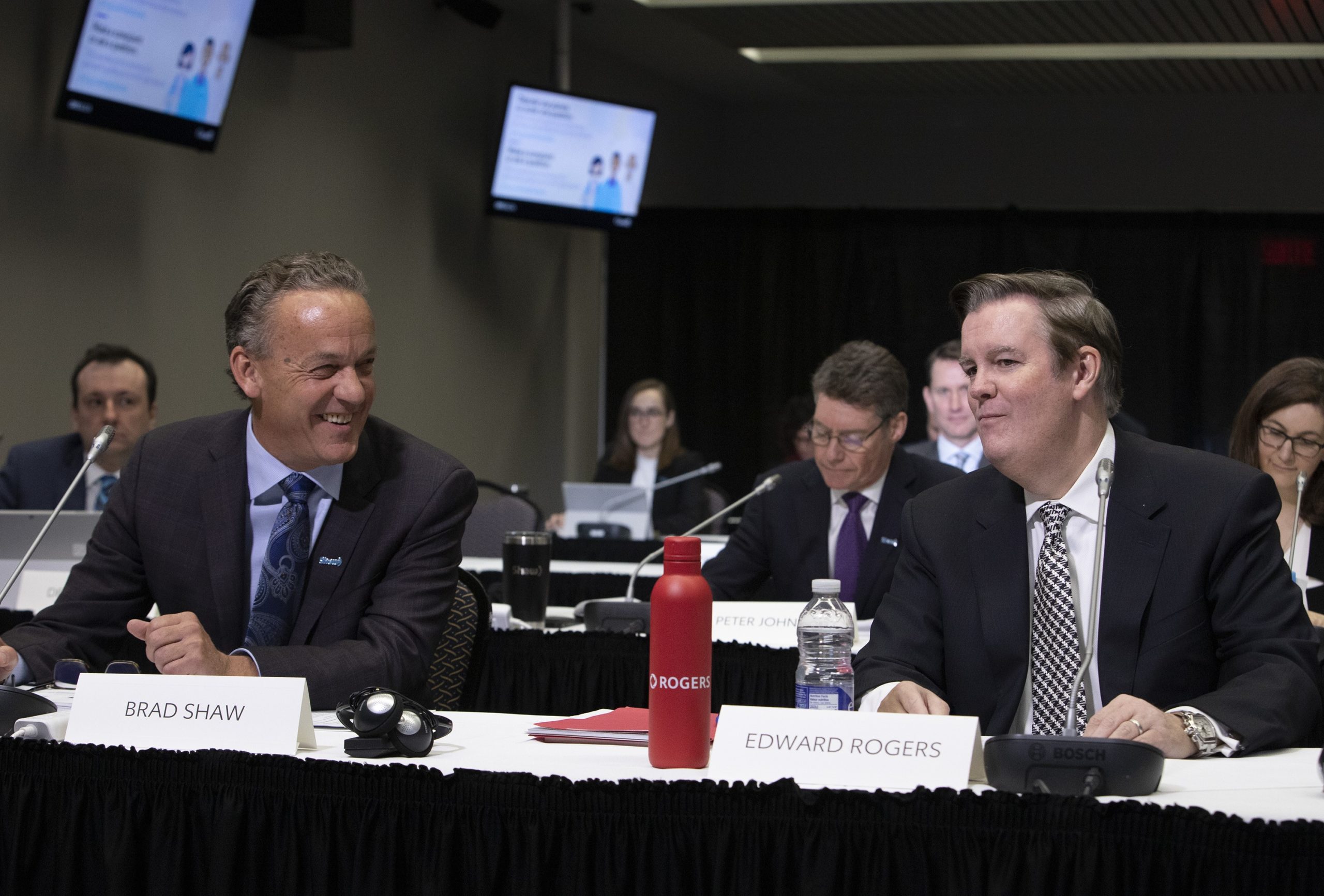BCE urges CRTC reject Rogers-Shaw deal, independents call for safeguards

GATINEAU, Que. — BCE Inc. urged the CRTC to reject Rogers Communications Inc.'s $26-billion proposed takeover of Shaw Communications Inc. on Thursday, while independent operators have called for more safeguards.
Speaking at the second-last day of hearings in Gatineau, Que. this week — which are focused the broadcasting implications of the deal — BCE representatives echoed concerns raised by broadcasters, producers and distributors about the market dominance Rogers would have if the deal were to be approved.
"The market power that Rogers seeks to acquire will have a long-lasting negative impact that will echo throughout this interdependent ecosystem," said Robert Malcolmson, chief legal and regulatory officer at BCE.
"If successful, Rogers will achieve a degree of control over the broadcasting sector at levels never before contemplated with no clear countervailing benefits for the Canadian broadcasting system."
Malcolmson pointed to the CRTC's initial rejection of BCE's acquisition of Astral Media in 2012 because of the market size it would create as a clear precedent for if not rejecting, at least requiring commitments from Rogers to sell off assets to reduce the resulting market share.
Sarah Farrugia, vice president of content and business intelligence at Bell, said that if Rogers were allowed to secure 47 per cent of English-language broadcast subscribers it would be able to secure exclusive rights to international programs that it could use to direct subscribers to its online streaming services at the detriment of the broadcast system.
"It is very clear that the transaction will result in Rogers benefiting from a dominant position in negotiations for carriage that, in turn, will lead to reduced revenues for Canadian channels."
Rogers has argued that it needs the increased scale to compete against increasing competition from companies like Netflix and Amazon, while keeping subscribers within the regulated broadcasting system.
While direct competitors to Rogers such as Telus Corp. and BCE Inc. have outright opposed the deal, companies that are dependent on Rogers and Shaw to host their programming have been more targeted, with many requests focused on maintaining the status quo for a specified period.
The Independent Broadcast Group has asked that Rogers commit to maintaining 50 independent channels, compared with the 40 the company has said it will maintain for three years.
Ethnic Channels Group has asked that the CRTC require subscriber revenue to the independent ethnic producers not decrease for five years; children's TV producer WildBrain has asked that the regulator force Rogers to continue to carry independents currently on Rogers or Shaw for five years; while others have asked that Rogers be forced to maintain the satellite transportation services that Shaw currently provides.
Earlier on Thursday, Reynolds Mastin, chief executive of the Canadian Media Producers Association, called for more tangible benefits from the deal, saying the $5.7 million Rogers has proposed is not proportional to the size of the deal.
"The commission should ensure that the applicant commits to a tangible benefits package that is proportionate to the size and nature of the transaction, and clearly and unequivocally benefits Canadians and their broadcasting system."
Unifor raised concerns about Rogers' plans to divert the $13 million a year Shaw gives to Global News to expand its own CityNews network, saying the plan risks losing a diversity of voices in smaller markets.
The hearings at the CRTC are focused on the broadcasting aspects of the merger, while other issues such as mobile wireless services will be reviewed by the Competition Bureau and from Innovation, Science and Economic Development Canada.
Rogers is scheduled Friday to respond to issues raised during the week.
This report by The Canadian Press was first published Nov. 25, 2021.
Companies in this story: (TSX:RCI.B,TSX:SJR.B; TSX:BCE)
The Canadian Press




